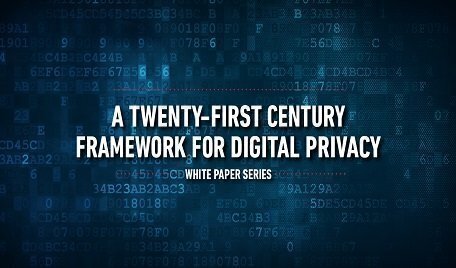At the beginning of the twenty-first century, breathtaking changes in technology pose stark challenges to privacy and security. Private companies collect massive amounts of consumer data—information that often contains intimate details about our personal lives, from the people that we email to the apps that we use to the websites that we visit. Law enforcement often seeks to access this information when investigating suspected criminals and terrorists, and the data itself is highly mobile, with companies able to send it across borders at the tap of a button. At the same time, hackers threaten our personal data through cyberattacks, and sophisticated users shield the contents of their data from law enforcement through the use of cutting-edge encryption tools.
 Concerns span the ideological spectrum. Libertarian conservatives and civil-libertarian liberals are united in their suspicion of state surveillance, while conservatives suspect regulation of the consumer sphere and progressives are concerned about concentrated corporate power. At the same time, judges and legislators have been remarkably slow to respond to the new threats cyberspace poses. There have been no great Supreme Court cases on data privacy since the 1980s; the statutory framework for regulating consumer privacy is incomplete and uncertain; and few judges or legislators have been willing to tackle the crucial challenge of translating the Constitution and key privacy laws in light of new technologies.
Concerns span the ideological spectrum. Libertarian conservatives and civil-libertarian liberals are united in their suspicion of state surveillance, while conservatives suspect regulation of the consumer sphere and progressives are concerned about concentrated corporate power. At the same time, judges and legislators have been remarkably slow to respond to the new threats cyberspace poses. There have been no great Supreme Court cases on data privacy since the 1980s; the statutory framework for regulating consumer privacy is incomplete and uncertain; and few judges or legislators have been willing to tackle the crucial challenge of translating the Constitution and key privacy laws in light of new technologies.
The National Constitution Center, with the support of Microsoft, has assembled leading scholars and thought leaders to publish a series of five white papers, entitled A Twenty-First Century Framework for Digital Privacy. We’ve asked these contributors to reflect on the challenges that new technologies pose to existing constitutional doctrine and statutory law and to propose solutions—doctrinal, legislative, and constitutional—that translate the Constitution and federal law in light of new technologies. The overarching question we asked contributors to address is how best to balance privacy concerns against the need for security in the digital age. These contributors represent diverse points of view and experiences and their papers reflect the Constitution Center’s commitment to presenting the best arguments on all sides of the constitutional issues at the center of American life.
The white paper series includes:
Whose Law Governs in a Borderless World?
Jennifer Daskal explores the challenges posed by data mobility and considers how best to resolve cross-border data disputes in a way that promotes privacy, security, and sovereignty.
Administering the Fourth Amendment in the Digital Age
Jim Harper critiques current Fourth Amendment doctrine and calls on courts to adopt a new approach that hews closely to the Fourth Amendment’s text and protects data, information, and communications as a key form of property.
Digital Divergence
David S. Kris challenges the view that balancing privacy and security in the digital age is a zero-sum game. Instead, he explores how advances in digital technologies are threatening both privacy and security.
Secret Government Searches and Digital Civil Liberties
Neil Richards tackles the issue of “secret government searches”—namely, instances of government surveillance that remain secret to the search target.
Policing and The Cloud
Christopher Slobogin explores how best to construct legal approaches that will allow the government to harness The Cloud’s investigative potential, while also limiting the opportunities for government abuses.
Starting today, you can read all five white papers at https://constitutioncenter.org/digital-privacy






